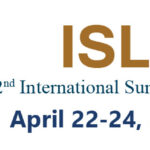
Dr. Gobivenkata Balaji and registered nurse Denise Clark of VNA of the Space Coast offer insight on the importance of blood-pressure readings
One of the worst aspects of hypertension is that it presents no obvious symptoms. You could have it right now and not even know it. That is, obviously, not a good thing. There are a number of ways to help prevent the onset of the disease, however. Let’s start with the obvious.
 “The most important thing is to understand is that hypertension is important,” says Gobivenkata Balaji, M.D., an internist of the Brevard Health Center in Melbourne. “(It’s important to) look for it, and if you find it, tell your physician. Most of the time, we have a problem because we don’t think we have to look for it. You have to look for it.”
“The most important thing is to understand is that hypertension is important,” says Gobivenkata Balaji, M.D., an internist of the Brevard Health Center in Melbourne. “(It’s important to) look for it, and if you find it, tell your physician. Most of the time, we have a problem because we don’t think we have to look for it. You have to look for it.”
The next time you’re in the drug store, sit down for a few minutes at the blood-pressure machine. Don’t forget to mark down your readings. If you can afford a blood-pressure cuff, that’s even better. Just be sure to bring it by your doctor’s office so that it can be checked to make sure it is working properly.
“The prevention of hypertension, and the treatment of hypertension, really involves you and your physician talking — making sure you’re on the right diet, and that you’re getting the right amount of exercise,” says Denise Clark, RN, BSN, who is a VNA of the Space Coast cardiac disease and telehealth coordinator.
HYPERTENSION RISK FACTORS
While there are some factors you simply can’t manage, like your age (typically, people 55 or over are at higher risk), your race (it’s more prevalent in non-white males) or a family history of high blood pressure, there are a number of things that are in your hands.
Clark works closely with Dr. Balaji’s patients, and the two agree on several basic things that patients can do to help prevent hypertension. (Readings above 140 over 90 would qualify patients as having the disease.)
There is proper diet, of course. Dr. Balaji and Clark say it’s best to not eat a lot of foods that are high in fat or salt (including salt substitutes). Exercise is also key. While some jobs are predisposed to being constantly active during a work day, it’s the people who spend most of their day at their desk who need to put an emphasis on working out.
Those who are overweight not only run the risk of hypertension, but diabetes and high cholesterol, as well. The more in shape you are, the healthier your heart likely is, too.
Smoking, naturally, is another big no-no. “When you smoke, you inhale toxins that damage not only your lungs, but the linings in your blood vessels,” says Clark. “It makes it harder for your heart to pump, and it damages the walls of your blood vessels. It makes them stiffer and causes your blood pressure to go up.”
THE SERIOUSNESS OF LETTING BLOOD PRESSURE GO UNCHECKED
Letting high blood pressure go unchecked can lead to major complications on many fronts. The problem is, though, a common headache or shortness of breath may not be seen as a sign of a much bigger problem.
“There are very few signs which you may or may not notice if your blood pressure is really high,” says Clark. “That’s the problem. It can be so high, you can have a stroke. That’s what happens to people who have high blood pressure for a long time and they don’t know it, or they don’t follow up with their physician.”
Hypertension can be managed, says Dr. Balaji, provided the patient is put on the right medicine. The patient has to take that medicine as prescribed while also managing blood pressure, which is where Clark and the other nurses at VNA can help.
Whether under a doctor’s care for other health conditions or not, Dr. Balaji suggests that all patients, particularly men, have a routine exam at least once a year to check for high blood pressure, among other things. Doing so more frequently, though, is a big plus.
“Physicians make their decisions based upon data. If we have more data, the decisions will be better, more validated, than basing it on one blood-pressure reading in the office,” says Dr. Balaji.
The life you lead now can have a tremendous influence on the quality of life you may have down the road. In order to truly prevent diseases like hypertension, it’s vital to be vigilant about its prevention.

“What people don’t realize is the preventative efforts they take now will help them so much in the future,” says Clark. “What diet and exercise will do now will keep you years off of being on medication.”
For more information on VNA of the Space Coast, call (321) 752-7550 or visit www.VNAA.org.












